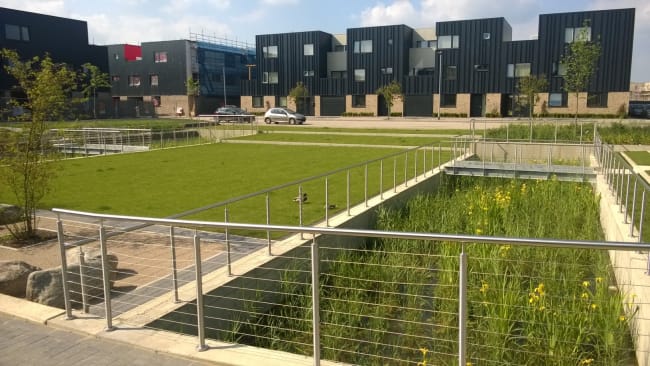The ability to deliver safe water, sanitisation and hygiene is becoming more challenging due to climate change, population growth and ageing infrastructure. How are different countries in the developed world tackling water management?
Natural topography and the challenges posed by climate change mean that even some of the most developed nations have their water management work cut out for them.
Reusing water is a popular, sustainable way to make the most of existing resources and reduce the impacts of pressures such as increasing demand or intensifying weather events.
Approaches to water reuse, however, can vary significantly from country to country based on environmental, logistical, economic and political factors.
In this Compendium, produced for the NHBC Foundation by Aquality Trading & Consultancy, the water management strategies of 10 nations in the developed world are analysed and compared.
The report explores:
- the different types of water reuse systems deployed in Australia, Belgium, England, France, Germany, Ireland, Japan, the Netherlands, Spain and the United States
- domestic consumption levels in each country
- the role of government policies in encouraging or mandating water reuse
- the range of support, incentives and grants available
- case studies of housing projects featuring water reuse systems.
Explore NHBC Foundation

About NHBC Foundation research
Delivering high-quality research and guidance to help the house-building industry address the challenges of delivering 21st-century new homes.

Access NHBC Foundation publications
Access and download NHBC Foundation’s full portfolio of publications and practical guides, covering primary research, research reviews and documents informing the debate.

Latest NHBC Foundation news
View the latest NHBC Foundation news, articles and facts showcasing the most recent publications and reporting on progress with new research projects.
Technical disclaimer
The information provided or contained on this website has been produced by NHBC for research and guidance purposes through the “NHBC Foundation”. It has not been created or intended for distribution or use outside of the purpose for which it was drafted. The information contained on this website does not constitute advice and is not to be relied upon by any third party. Any third party who chooses to rely upon the information contained on this website shall do so entirely at their own risk and NHBC accepts no duty of care or liability, however caused, in connection with its use or reliance by any third party. It is not updated or maintained.
This website may contain links to websites operated by third parties. Third party websites are not under our control, and we are not responsible for the content of any third-party website, or any link contained in a third-party website. NHBC do not review, approve, monitor, endorse, warrant, or make any representations with respect to third party websites. Any third party who chooses to rely upon the information contained on a third-party website shall do so entirely at their own risk. NHBC accepts no duty of care or liability, however caused, in connection with its use or reliance by any third party.
